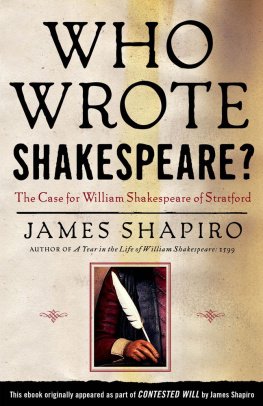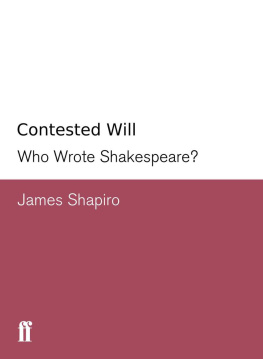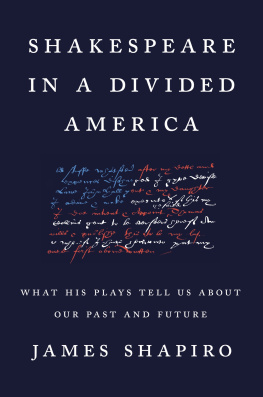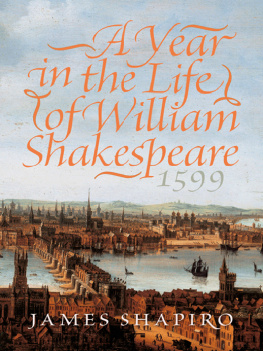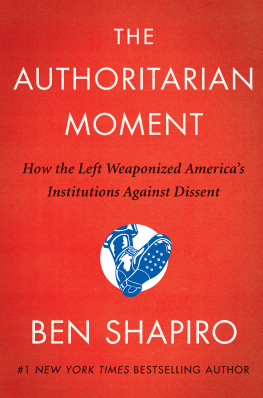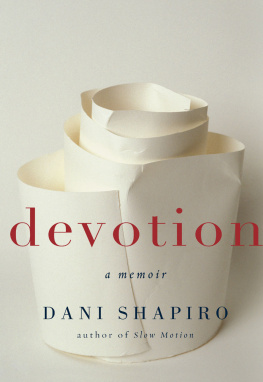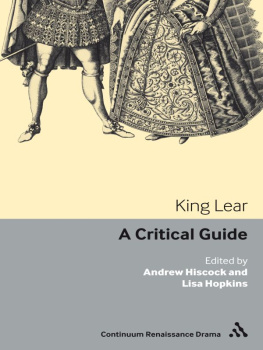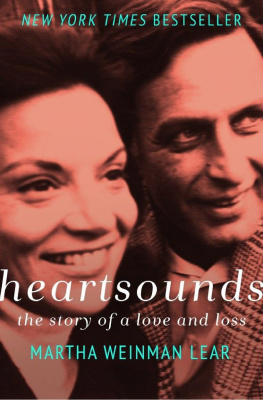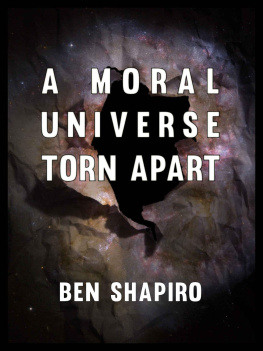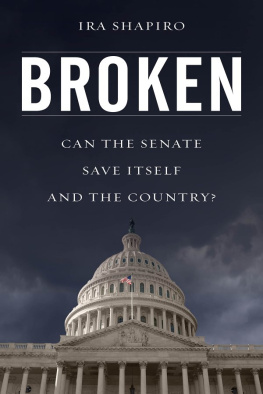James Shapiro - The Year of Lear
Here you can read online James Shapiro - The Year of Lear full text of the book (entire story) in english for free. Download pdf and epub, get meaning, cover and reviews about this ebook. publisher: Simon & Schuster, genre: Home and family. Description of the work, (preface) as well as reviews are available. Best literature library LitArk.com created for fans of good reading and offers a wide selection of genres:
Romance novel
Science fiction
Adventure
Detective
Science
History
Home and family
Prose
Art
Politics
Computer
Non-fiction
Religion
Business
Children
Humor
Choose a favorite category and find really read worthwhile books. Enjoy immersion in the world of imagination, feel the emotions of the characters or learn something new for yourself, make an fascinating discovery.
- Book:The Year of Lear
- Author:
- Publisher:Simon & Schuster
- Genre:
- Rating:4 / 5
- Favourites:Add to favourites
- Your mark:
- 80
- 1
- 2
- 3
- 4
- 5
The Year of Lear: summary, description and annotation
We offer to read an annotation, description, summary or preface (depends on what the author of the book "The Year of Lear" wrote himself). If you haven't found the necessary information about the book — write in the comments, we will try to find it.
The Year of Lear — read online for free the complete book (whole text) full work
Below is the text of the book, divided by pages. System saving the place of the last page read, allows you to conveniently read the book "The Year of Lear" online for free, without having to search again every time where you left off. Put a bookmark, and you can go to the page where you finished reading at any time.
Font size:
Interval:
Bookmark:
More from the Author | |
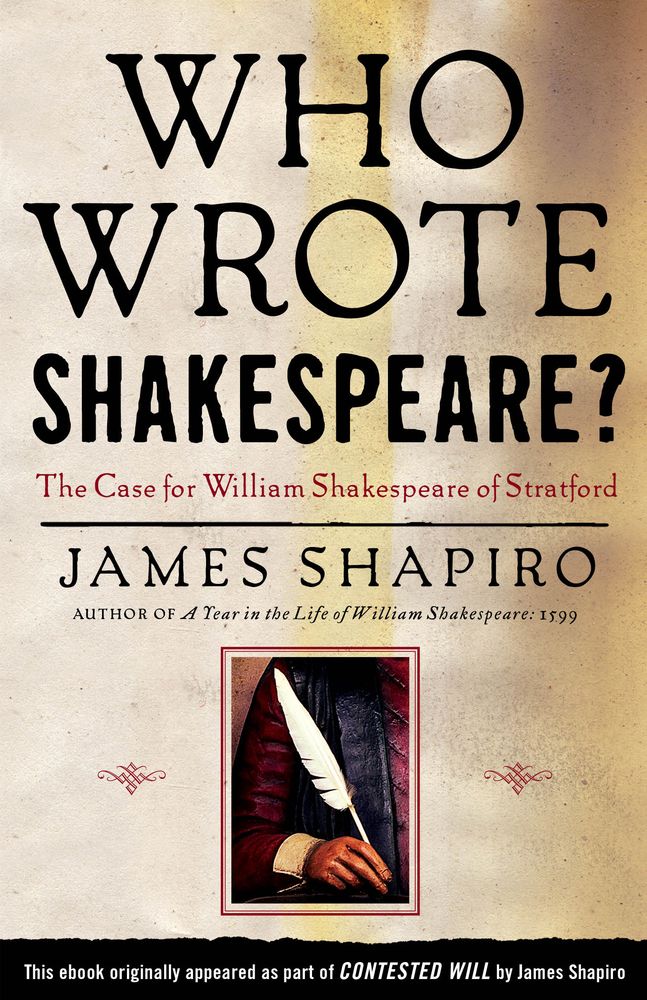 | 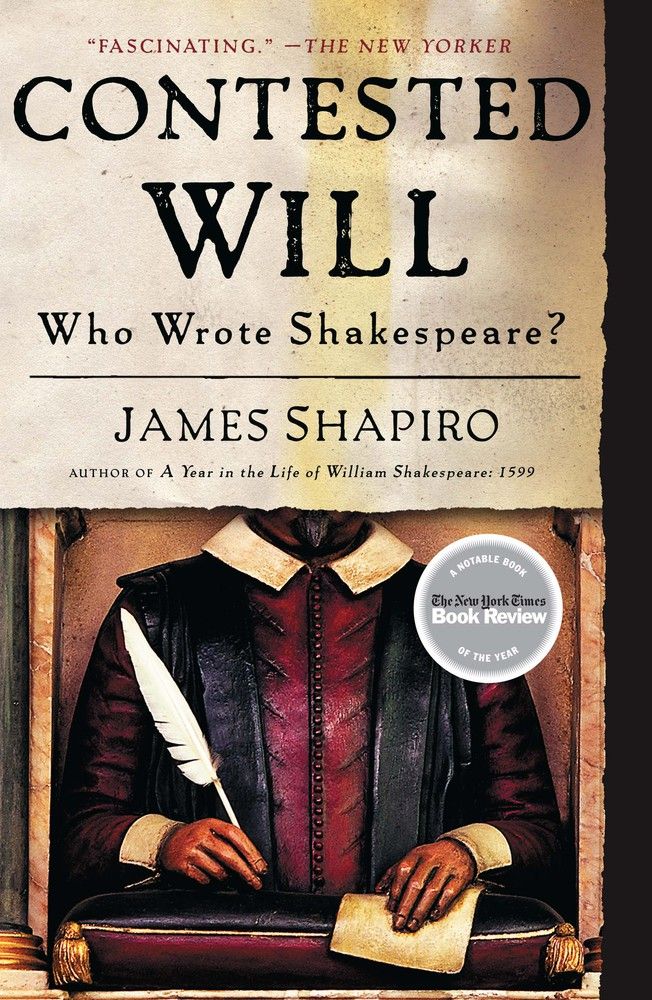 |
Who Wrote Shakespeare? | Contested Will |
Im deeply indebted to the friends and scholarsJames Bednarz, Stanley Wells, Richard McCoy, Mary Cregan, Alvin Snider, Robert Griffin, Andrew Hadfield, and David Kastanwho patiently read early drafts and challenged me to write a better book. Others provided crucial assistance along the way. In a singular act of generosity, Mairi Macdonald, formerly the head of local collections at the Shakespeare Birthplace Trust, gave me her extensive cache of records relating to Warwickshire and the Gunpowder Plot. Robert Bearman, the retired head of archives at the Shakespeare Birthplace Trust, was also helpful on this subject. Lori Anne Ferrell steered me to a crucial Lancelot Andrewes sermon of which I was unaware; John Pitcher shared his great knowledge of Samuel Daniel; Margaret Owens generously shared her forthcoming work on the effigies at Westminster Abbey; H. Neville Davies, the leading authority on King Christians visit to England, answered repeated inquiries; an evening spent with Charles Nicholl deepened my understanding of Shakespeares relationship with Marie Mountjoy; Michael Boyd was especially helpful on the Porter scene in Macbeth ; Arnold Hunt shared his suspicions about the fictionality of some of John Haringtons letters; Alan Nelson helped with London parish records; Mark Nicholls, whose knowledge of the Gunpowder Plot is unrivaled, graciously answered my questions about the army organized to suppress the feared Midlands rising; Elizabeth Williamson did a superb job of transcribing Simon Formans manuscripts; and, over the years, Alan Stewart and H. Aram Veeser have patiently heard out many of the arguments in these pages. The long bibliographical essay gives some sense of how much I owe to generations of scholars.
My understanding of Jacobean culture was enriched in the course of making a three-hour BBC documentary that aired in 2012: The King and the Playwright: A Jacobean History (subsequently released as Shakespeare: The Kings Man ), made in collaboration with Phil George and Steven Clarke; I am grateful to them both and to our wonderful crew. Many outstanding stage productions of King Lear , Macbeth , and Antony and Cleopatra in recent decades have shaped my understanding of these plays. I am especially indebted to the directors and actors with whom I have had the opportunity of speaking and working. A generation of talented Columbia students, including those I have taught in graduate and undergraduate seminars on 1606, have sharpened my understanding of Shakespeare and his times.
I have spent much of the past decade in the archives and it is there that the story in these pages took shape. I am beholden to the expert librarians at the Folger Shakespeare Library, the British Library, the New York Public Library, the British Museum, the Public Records Office, the Bodleian Library, the Columbia University Libraries, the Union Theological Seminary Library, and the Shakespeare Birthplace Trust.
I am blessed in my literary agent and friend Anne Edelstein, and I have had the privilege of working again with two of the finest editors in the publishing world: Bob Bender and Julian Loose. Im also grateful to Rachel Calder as well as Johanna Li and Kate Murray-Browne. Ive dedicated the book to Mary Cregan and our son, Luke; without their great patience, insight, and support it could not have been written.
ALSO BY JAMES SHAPIRO
Shakespeare in America, editor
Contested Will: Who Wrote Shakespeare?
A Year in the Life of William Shakespeare: 1599
Oberammergau: The Troubling Story of the Worlds Most Famous Passion Play
Shakespeare and the Jews
Rival Playwrights: Marlowe, Jonson, Shakespeare

PHOTOGRAPH BY MARY CREGAN
JAMES SHAPIRO is the Larry Miller Professor of English at Columbia University. He is the author of five previous books, including Contested Will: Who Wrote Shakespeare? , and is the editor of Shakespeare in America . He has also written and presented documentaries for the BBC. He has been awarded fellowships by the Guggenheim Foundation, the NEH, the Cullman Center for Scholars and Writers, and the Huntington Library. He is a Governor of the Folger Shakespeare Library, a member of the Board of Directors of the Royal Shakespeare Company, Shakespeare Scholar in Residence at New Yorks Public Theater, and was recently inducted into the American Academy of Arts and Sciences.
Visit the author at www.JamesShapiro.net
MEET THE AUTHORS, WATCH VIDEOS AND MORE AT
SimonandSchuster.com
authors.simonandschuster.com/James-Shapiro
What follows is intended to serve the needs of those searching for a particular source as well as those interested in a broader guide to the material covered in this book. Before turning to specific citations in individual chapters, readers may find it helpful to look at the principal sources of Shakespeares life and work, Jacobean theater, and early-seventeenth-century British history that have guided my assumptions and conclusions throughout these pages.
The bare facts of Shakespeares life have been collected in a few key sources: E. K. Chambers, William Shakespeare: A Study of Facts and Problems , 2 vols. (Oxford, 1930) and S. Schoenbaum, William Shakespeare: A Documentary Life (New York, 1975). J. O. Halliwell-Phillipps, Outlines of the Life of Shakespeare (11th impression; London, 1907) is still useful. More recent discoveries can be found in Shakespeare in the Public Records , ed. David Thomas (London, 1985); and Shakespeare in the Stratford Records , ed. Robert Bearman (Stroud, Gloucestershire, U.K., 1994). Relevant documents about Stratford-upon-Avon in Shakespeares day can be located through James O. Halliwell, A Descriptive Calendar of the Ancient Manuscripts and Records in the Possession of the Corporation of Stratford-upon-Avon (London, 1863). See too the six published volumes of the Minutes and Accounts of the Corporation of Stratford-upon-Avon and Other Records , eds. Richard Savage and E. I. Fripp, vols. 14 (Hertford, U.K., 192130); ed. Levi Fox, vol. 5 (Hertford, U.K., 1990); and the one most relevant for the year 1606, vol. 6: Minutes and Accounts of the Stratford-upon-Avon Corporation, 15991609 , ed. Robert Bearman (Bristol, U.K., 2011). For Shakespeare in Stratford-upon-Avon and its environs, see, Edgar I. Fripps several volumes: Master Richard Quyny, Bailiff of Stratford-upon-Avon and Friend of William Shakespeare (Oxford, 1924); Shakespeares Stratford (Oxford, 1928); Shakespeares Haunts Near Stratford (Oxford, 1929); and Shakespeare: Man and Artist , 2 vols. (Oxford, 1938); Charlotte Carmichael Stopes, Shakespeares Warwickshire Contemporaries rev. ed. (Stratford-upon-Avon, 1907); as well as Mark Eccless outstanding Shakespeare in Warwickshire (Madison, Wisc., 1961). Two other valuable studies are The History of an English Borough: Stratford-upon-Avon 11961996 , ed. Robert Bearman (Stroud, Gloucestershire, U.K., 1997); and Jeanne Jones, Family Life in Shakespeares England: Stratford-upon-Avon 15701630 (Stroud, Gloucestershire, U.K., 1996).
I have consulted a number of modern biographies: Peter Thomson, Shakespeares Professional Career (Cambridge, U.K., 1992); Park Honan, Shakespeare: A Life (Oxford, 1998); Jonathan Bate, The Genius of Shakespeare (New York, 1998); Anthony Holden, William Shakespeare: His Life and Work (London, 1999); Katherine Duncan-Jones, Ungentle Shakespeare (London, 2001); Michael Wood, In Search of Shakespeare (London, 2003); Stanley Wells, Shakespeare for All Time (Oxford, 2003); Stephen Greenblatt, Will in the World (New York, 2004); Ren Weis, Shakespeare Revealed : A Biography (London, 2007); and Lois Potter, The Life of William Shakespeare: A Critical Biography (Malden, Mass., 2012). I also draw on the research that found its way into my own study, 1599: A Year in the Life of William Shakespeare (London, 2005).
Font size:
Interval:
Bookmark:
Similar books «The Year of Lear»
Look at similar books to The Year of Lear. We have selected literature similar in name and meaning in the hope of providing readers with more options to find new, interesting, not yet read works.
Discussion, reviews of the book The Year of Lear and just readers' own opinions. Leave your comments, write what you think about the work, its meaning or the main characters. Specify what exactly you liked and what you didn't like, and why you think so.

